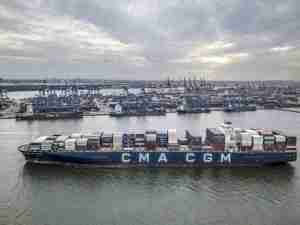TAPA EMEA Calls for greater collaboration as recorded cargo crimes rise 66 percent
posted by AJOT | Mar 18 2014 at 09:18 AM | Maritime
The Transported Asset Protection Association (TAPA) is calling for greater collaboration with law enforcement agencies in Europe to combat mounting cargo crime after its 2013 annual report revealed a 66% increase in incidents recorded by the Association and average losses per crime of €235,000*.
TAPA EMEA’s Incident Information Service (IIS) captured data on 1,145 separate crimes against high value, high risk goods moving in supply chains across the Europe, Middle East and Africa region in 2013, with the vast majority of thefts taking place in Europe.
In 2013, 165 ‘Major’ crimes with a loss value in excess of €100,000 were recorded by TAPA EMEA. This is based on information provided by the Association’s members, data from law enforcement agencies in the EMEA region and media reports.
“We know that manufacturers and logistics service providers that adopt TAPA’s security standards as part of their supply chain security programmes are three times less likely to suffer cargo crime. Nonetheless, the trend is clear; cargo crime is increasing, supply chains are being targeted by organised criminal gangs, and attacks are becoming more sophisticated and violent,” said Thorsten Neumann, Chairman of TAPA EMEA.
The 10 biggest thefts during the course of last year featured combined losses in excess of €55 million as thieves targeted diamonds, gold, silver, smartphones and tablets, currency, electronics, cigarettes and bicycle parts. Pharmaceuticals were another prime target for criminal gangs as well as metal, clothing, cosmetics and food & beverage products.
Over half of the crimes involved thefts from vehicles, according to the Association, which is working proactively with ESPORG (the European Secure Parking Organisation) to promote the need for more secure parking sites across Europe. As well as attacks on parked trailers, TAPA has highlighted a growing trend of criminals boarding trucks to steal goods while they are moving, even along highways and motorways. Other modus operandi includes thefts from facilities, fraudulent pick-ups, fake ‘police’ stops and violent hijackings.
Thorsten Neumann added: “Industry is fighting back against these losses with the support of police forces across the EMEA region. Throughout 2013, police successfully made arrests and prosecutions and broke up criminal gangs known to be involved in cargo crime. They were also able to recover large amounts of stolen goods. TAPA EMEA is receiving strong support from the Dutch and Belgian police, who are sharing their incident data with us to help our members gain a better understanding of the volume and locations of incidents and the tactics being used by criminals. We also have good dialogue and cooperation with Europol and Interpol. This is all essential intelligence when it comes to planning a resilient supply chain.
“We are actively trying to encourage other law enforcement agencies to work with us towards achieving our shared goals and we are also joining forces with other organisations to continually raise the issue of cargo crime at government and regulatory levels. We are making good progress in terms of providing industry-leading security standards and training that help TAPA members in their programmes to effectively combat crime but the statistics show there is no room for complacency. In 2008, average losses for cargo crimes were just over €58,000. Last year, this figure stood at €235,000. Criminals are continually proving they will go to any lengths to steal from supply chains so the need for collaboration between industry, police and other stakeholders has never been greater.”








